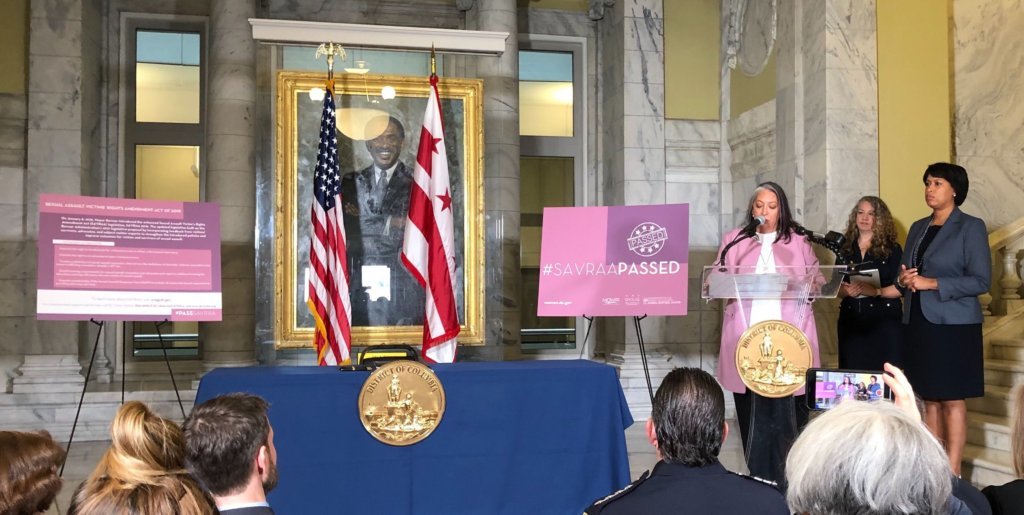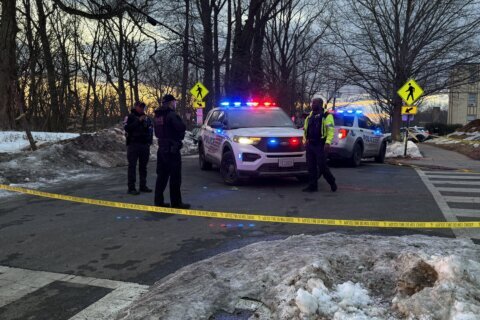Survivors of sexual assault have expanded rights in D.C. under a new measure signed into law Tuesday.
Under the Sexual Assault Victims Rights Amendment Act of 2019, every hospital in D.C. will have advocates on hand to help sexual assault victims navigate what can be a confusing, stressful time.
“Strengthening that right to an advocate, and also making advocates available to teenagers, is one of the most critical elements of this bill,” said Michelle Garcia, director of the D.C. Office of Victim Services and Justice Grants.
Garcia said advocates will work with victims, talk them through their needs and help them make informed decisions.

“Whether that’s making a report to law enforcement, going to the hospital to get a rape kit done — and even within that, you have a choice of reporting or not reporting,” Garcia said.
People getting help from advocates don’t have to report their assaults, but if they do, Garcia said they’re more likely to get justice with the help of advocates.
“We know from the research that when victims and survivors feel supported, they are more likely to engage with the criminal justice system,” and they’re more likely to stay involved in the process, Garcia said.
“And that leads to better outcomes both in investigations and in prosecutions,” she added.
Other elements of the legislation include:
- Making it easier to apply for financial assistance from the Crime Victims Compensation Fund.
- Extending the right to a victim advocate to victims as young as 13.
- Guaranteeing area hospitals’ advocacy services include electronic and telephone communication options for when a survivor doesn’t want to visit with an advocate in-person, or when in-person visits are impractical.
- Requiring that sexual assault counselor training be included in advocates’ trauma-informed care.
- Clarifying the timeline for when D.C. police must provide updates on sexual assault kit testing and toxicology reports to survivors.
- Welcoming additional organizations working with sexual assault survivors to join DC’s Sexual Assault Response Team.
There are many “barriers to disclosing sexual violence,” D.C. Council member Charles Allen (D-Ward 6), chair of the Committee on the Judiciary and Public Safety, said in a news release. “Survivors must wrestle with being disbelieved, resulting trauma from the shame of having been victimized, or confusion surrounding the legal process.”
“The bill being signed into law today represents a groundbreaking and dramatic expansion of the rights of sexual assault survivors,” Allen said.
The new law builds upon and fills in the gaps of a measure passed in 2014 with the support of the D.C. Justice for Survivors Coalition.
“DCJSC is a grassroots coalition of sexual assault survivors and allies that are committed to seeing that survivors are treated with dignity and respect by those in positions of aiding us, whether that be medical professionals, social service providers or members of the criminal justice system,” said Marisa Ferri Light, one of the group’s founding members.
Light told those gathered in the front foyer of the Wilson building for the bill signing that it’s right to celebrate the milestone of passing the measure. But she also pointed out that, now, the difficult part of implementing it must begin.








